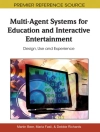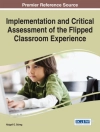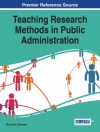This innovative book looks at the keys for success in dyslexic adults, comparing both those who are successful and less successful, enabling parents and teachers to use these keys to best support young dyslexics. These keys look at home life, school, career choices, working relationships, coping strategies, traits, unique selling points, and what is considered success for somebody with dyslexia. The Successful Dyslexic questions if school-based trauma can be used positively, as both successful and unsuccessful dyslexic adults share the same traumatic school experiences. It is how these adult dyslexics have used this trauma, positively or negatively that has set them on the path for success, or to struggle as adults searching for a worthwhile career. The theories of ‘disability paradox’ and ‘post-traumatic growth’ are used to understand why despite having a disability, many dyslexics can be, and are, highly successful. This book details an interview study of 27 successful and 10 less successful dyslexics, with 2 expert interviews, and supported by two large online studies. In total this book includes the contribution of 191 adult dyslexics. Each in-depth interview has sought to understand the individual’s journey from childhood to adulthood, and their quotes are used to enlighten the reader to each of their individual experiences. Armed with these insights, it is hoped that parents and teachers of young dyslexics can set them on the path to unlock their own future success.
Daftar Isi
Foreword; The Reason for This Book; Introduction; Dyslexia?; What Is Dyslexia?; The Dyslexic at School; The Dyslexic in the Workplace; Successful Dyslexics; Unemployed/Less-Successful Dyslexics and Dyslexics in Prisons; Dyslexia and Self-Esteem; Dyslexia and Mental Health; Overview; Research Method; Sample – Successful Dyslexics; Sample – Less Successful/Unemployed Dyslexics; Hypothesis; The Results – Successful Sample; How Does Dyslexia Affect You?; Personality – How Would Someone Describe You?; CHILDHOOD; Home Life – Supportive Parents; Supportive and Nurturing; Dyslexia in the Family; Chapter Conclusion; School; Teachers; Avoidance of Tasks; Qualifications Gained to Date; Chapter Conclusion; Diagnosis – Why Was I Not Diagnosed at School?; Teachers Lacked the Training; Schools Lack the Resources; Dyslexics Camouflaging; Chapter Conclusion; ADULTHOOD; Working Relationships; Leadership; Communicating a Vision to Others; Team-Building; People Skills; Following Your Gut/Business Intuition; Chapter Conclusion; Coping Skills; Delegating; Mentors – Do You, or Have You Ever Had a Mentor?; Support Networks & Awareness of Strengths & Weaknesses; Compensation/Coping Strategies; Creating a Suitable Work Environment; My Motivation for Life?; Chapter Conclusion; Traits; Attitude Towards Risk; Attitude Towards Failure; Resilience and Persistence; Passion to Work Hard to Achieve Goals; Are Dyslexics Over-Achievers?; Chapter Conclusion; Attitudes towards Success; Conclusion; What Sort of an Entrepreneur Are You?; Improving the World; Self-Discovery, Proving Myself, to Realise My Creativity; Unique Selling Points (USPs); Creativity/Divergent Thinking; People Skills, Facilitating Others, Understanding People (Strengths and Limitations); Happy to Experiment; Questioning Perceived Wisdom; 3D Visualisation; Intuition; Chapter Conclusion; Was School Trauma the Motivator for Their Success?; Chapter Conclusion; Why Am I Successful?; Conclusion from the Successful Sample Project; Interview with an Expert: Successful Dyslexics; Parents; School; Adulthood; Awareness of Strengths and Weaknesses; Traits; Attitudes towards Failure; Unique Selling Points (USPs); Post-Traumatic Growth; Motivations for Success; The Results – Less Successful/Unemployed Sample; Dyslexia; How Does Dyslexia Affect You; What Strategies Do You Use?; Other Dyslexics in the Family; Personality; Assessments; Reflections on My Assessment; Emotional Implications of Diagnosis; Late Diagnosis; Parents; Parents Had Their Own Learning Difficulties; Help with Homework; How Parents Dealt with Their Dyslexia Diagnosis; Poor Parental Career Advice; School; Did I Enjoy School?; Excellence in Subjects; Coping Strategies/Avoidance; Avoiding My Own Peers; Poor Excuses; Teachers Didn’t See or Ask Me Why I Was Struggling; Put with the Bad Crowd at School (The Lowest Sets); Employment; Length of Unemployment; Unemployment; Barriers to Employment; Awareness of Strengths and Weaknesses; Difficulties; Strengths; Barriers to Choosing a Career or Making Poor Career Choices; Searching for Jobs; Completing Application Forms; Support Networks; Interviews; Disclosure; Lack of Adjustments/Discrimination; Being Over or Under-Qualified; Alternative Job Routes; Failure/Resilience; Dealing with Failure; Resilience; Unique Selling Points-USP; Strategies Adopted; Criminal Activities; Voice Box; Conclusions from the less Successful/Unemployed Sample Project; Interview with an Expert: Less Successful/Unemployed Dyslexics; What Support Do You Offer?; Help with Writing Their CVs; The Most Common Problem?; Personal Statements; Arriving Late for Interviews?; School and University; Do Dyslexics Go for the Wrong Jobs?; Realistic Ambitions?; Are Dyslexics Frustrated with the Lack of Help at Job Centres?; Discussion; School Trauma as a Common Theme; The Effect of the School Trauma; Without the School Trauma, Would They Be Less Successful?; Post-Traumatic Stress Disorder (PTSD); The Positive Use of School-Based Trauma (Post-Traumatic Growth-PTG); Coping Strategies; Perceptions of Success; The Psychological Effect of Success and Failure; We Are the Product of Our Environment and Upbringing (For Better or for Worse); Dyslexics in Prison/Unemployed; Disability; Models of Disability; The Disability Paradox; Developing Success; To Succeed You Must Fail First; Understanding Success; Promoting ‘Grit’ in Children; Talent or Hard Work?; So Why Are Many Dyslexics Successful?; The Keys to Success; Parents; Hobbies; School; Career Guidance; University; The Workplace; Personality Traits; Coping Strategies; Awareness of Strength and Weaknesses; Conclusion; Final Words; Appendices; Bibliography; Index.












